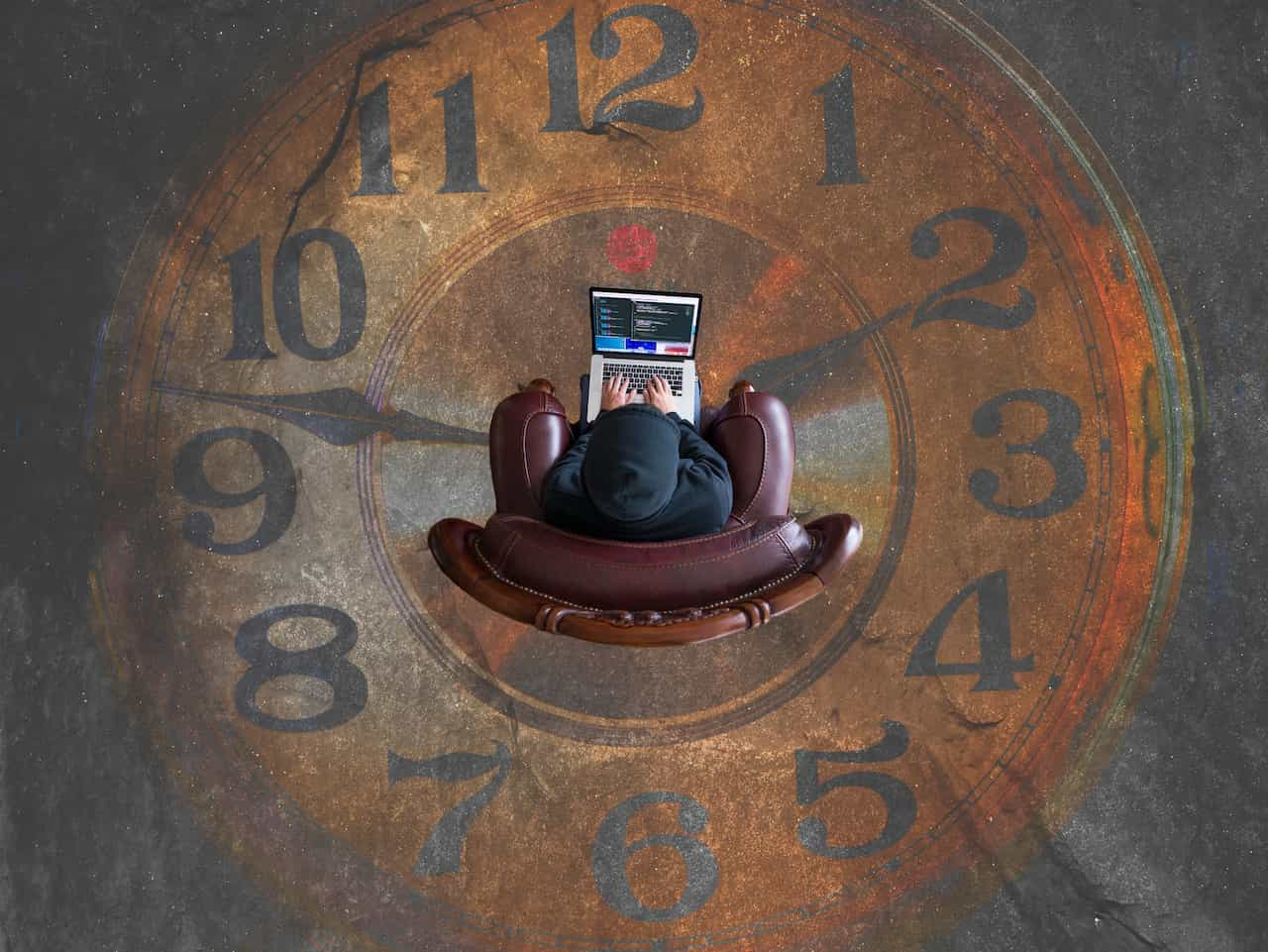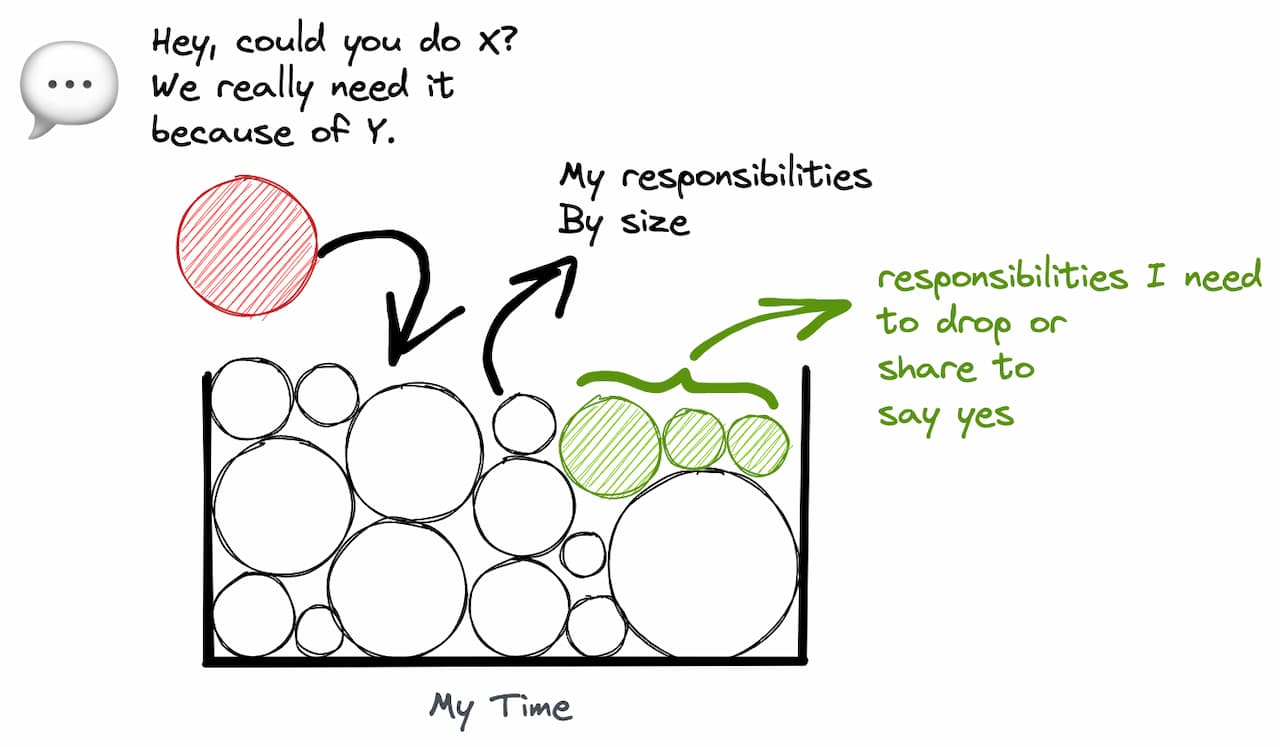Making time for what matters
 *Photo by Kevin Ku on Unsplash *
*Photo by Kevin Ku on Unsplash *
Becoming a manager makes time management a matter of survival. When I first became one, I lost control of my schedule. Before that, I used to manage my time well and spend time on things that were most important to me. Suddenly that wasn't true. I didn't have a routine anymore. I over-worked to finish all that I promised because I wanted to feel dependable. I got tired, didn't have time to reflect on all my mistakes as a new leader–overwork included.
I vividly remember the day I realized this. I was reading High Output Management. In a few pages, Andy describes one of his days and how he spent his time in different categories: Gathering Information, Giving Information, Nudging, and Decision-Making. And it just felt so alien. We had very different job descriptions, but my day was not like that at all. Knowing I had a time management problem, I decided to debug it. I charted the amount of time I spent in different activities based on my calendar and figured out two things:
- I couldn't account for several hours of my day and how what I was working on those hours was strategic to my goals
- My priorities and time-applications were utterly out of sync
Whenever the complexity of our work increases, for example, when we change roles or want to perform at different levels, we understand that we need new Skills. And skills matter a lot. But they're not where people usually fail. People fail at how they apply their time and on what they value. I was failing on both of those. These were the main ways I solved that and got back to feeling good about my day:
- Fixing the way I think about my responsibilities
- Keeping a Prioritized list and preventing important things from becoming urgent without notice
- Using my Focus time intentionally and well.
Fixing the way I think about my responsibilities
Time is the scarcest of resources. We can only fit so many things in our week before it starts overflowing and leaking, or worse, before we start failing at them.
"None will be found willing to distribute their money to others; but among how many others do each of us distribute our lives! Men are tight-fisted in guarding their fortunes, but extravagant when it comes to wasting time – the one thing about which it is right to be greedy.
– Seneca, On the Shortness of Life 3.1
I said yes too much. To this day, I find myself struggling with saying no to people I care about. It feels wrong. But saying yes when I can't dedicate the proper time is simply irresponsible. Either to the other things I value from which I will rob time or to the person If I can't deliver. So this was the first thing to fix: I had to learn when and how to say yes.
To say yes properly, we need to be able to understand what our current responsibilities are. We need to know how much of our time we've already filled, which seems obvious but do this exercise, and I'm sure you'll get something out of it:
- List out all your current responsibilities
- Rank them on how important they are (t-shirt sizes is fine)
- Rank them on how time-consuming they should be
- Go back to your calendar and check how much time you dedicated to each one of them
The first time I went through my calendar and priorities, I was dumbfounded by how much I played myself. I didn't dedicate time to the top priority issues and instead over-prioritized work I already knew how to do. Comfy work. Even worse, I had accumulated so much work I would not meet several of the deadlines I had agreed upon with my directs and stakeholders. I was robbing people of work that would help them grow and slacking on work that only I would do at that moment.
We have people around us and in our team. Most of the time, someone can share or fully take on some of our responsibilities—someone who would be motivated and grow with that. Doing that frees up time so that we can say yes to other things. Also, most of the time, we can drop other commitments, and that's fine. We fail when we drop things we shouldn't, it's even worse when it's unintended. We fail when we lick the cookie and hold on to it, not sharing and not letting other people grow.
 Be intentional about what you want to say yes to and what you want to share or drop
Be intentional about what you want to say yes to and what you want to share or drop
Keeping a Prioritized list and preventing important things from becoming urgent without notice
"We have 300 TO DO Lists on Notion, we have a TO DO List on Jira, We have a TO DO List on Slack Reminders. How the f**k am I supposed to know what I should do???"
– Disgruntled team member who did not want to be named
Communication is hard (this 30+ rule guide from basecamp makes that case well). Besides all the work we have to do, we get bombarded with messages triggering assignments of the most varied shapes sizes. It's easy to get overwhelmed and fall back to working only on urgent things. We can quickly grasp urgency, and reacting is usually easier than proactively doing things. So it's common to miss out on important work until it's too late and we can't do it well enough. I saw this happening to me, so in talking with one of the most organized and efficient managers I know, @pamepeixinho, I set up a system that works for me. I based the system I set up on the Eisenhower Matrix, and it's straightforward:
- Whenever I get something new, if it's something I can do in less than a minute and I have that minute, I do it. Otherwise, I add it to a single source of truth that I will refer to in the future.
- For all the tasks I add, I tag them as important or urgent.
- Things that are important and urgent are things I need to do ASAP.
- I schedule and make time for things that are important but aren't urgent. I create them as a "Plan X" or "Schedule X" task instead of a "Do X" task.
- Things that are urgent but not important are tempting distractions. I try to avoid these the best I can.
The system that will work for you is not necessarily this, so try out different techniques and see what works. Some notable being: Eat that Frog, Pareto for Time Management, and Personal Kanban.
If you choose to adopt or adapt any of these systems, make sure you apply your time to your highest priority items and that you don't miss out on work that isn't urgent. If you do that, you're fine.
Using my Focus time intentionally and well.
Before we go forward if you haven't already: Block several chunks bigger than 2hs on your calendar and question people if they schedule meetings during those hours. Do it until you reach enough time for the focused work you need to do. If you're a Manager or a Tech Lead, go for ~12-15h. If you're an individual contributor, this number should be closer to ~25h, even higher if you do a lot of creative work.
When we have focus time blocked in our calendar, we need to use it intentionally, and we need to use it well:
Intentionally
We know beforehand the blocks of time we have where we can do deep work. So we can go back to our list, choose the highest priority items, and assign them to those blocks of time. This gives us clarity and an opportunity to adjust expectations. There are two moments when I do this: The start of each week. And the end of each day, I review the next day and the rest of the week.
Well
Focus time is for Focus. So stop checking Inbound (email, Slack, etc). Indicate that you're on your focus time on your Calendar and Slack. When people send you something, let their questions marinate. A lot of times, they will solve the issue themselves. If they need you, ask them to write: "urgent" in their messages. People have mixed results with this, but I use Pomodoro to manage my timing during Focus sessions with varying lengths. I recently learned about Abao's youtube channel from @leandrotk_. If Pomodoro is your thing, I recommend you try it out.
At the end of each focus time, assess how much of the work you got done. If you can't meet your deadlines, adjust expectations or move meetings and time around to enable you.
In Conclusion
Time is scarce. This realization alone puts our work and what we say yes to into perspective. So I try to dedicate time to things that I love that spark my curiosity. At the end of the year, I want to feel meaning in the work that I did. I want to have great memories from the year that has passed. Doing these three things has dramatically helped me with that. Each year I feel like I've grown and that I can do more and get to spend more time with the people I love. So I hope these tips help you achieve that as well 😊